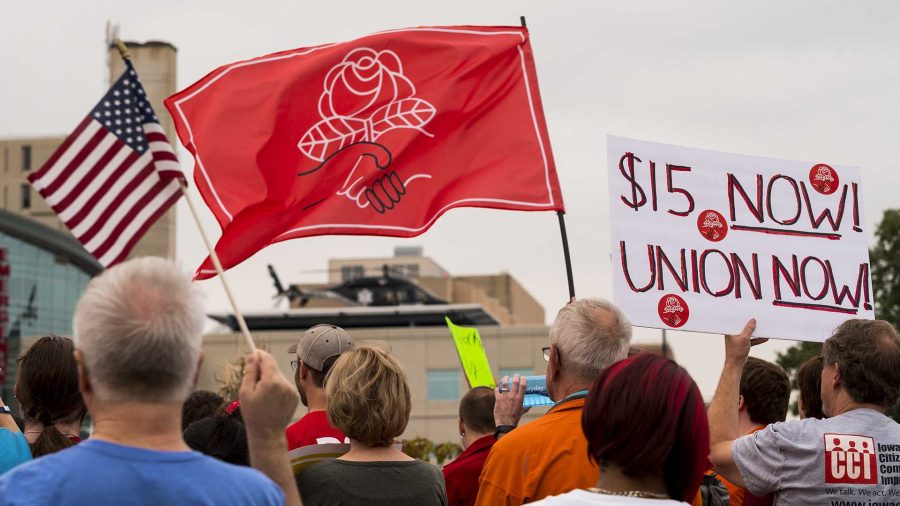Minimum wage is part of the answer to ending poverty, and local candidates are addressing it.
Caleb Bell wrote an article critical of Ryan Hall and Cathy Glasson for their support of minimum-wage increases. Bell argued a minimum-wage increase “will fail to lift the working poor out of poverty, and it will negatively affect the working poor in our communities.” In support of these claims, Bell cited two studies: one 2010 study by the Employment Policies Institute and a 2017 study by the University of Washington.
The institute’s study only states there are diminishing returns to minimum-wage increases: larger increases give less of the gains to poorer workers. It does not imply poorer workers do not benefit, nor that minimum-wage increases do not (up to a certain point) lift people out of poverty. Indeed, if the Congressional Budget Office is to be believed, if we raise the (federal) minimum wage to $10.10 hourly, “Many more low-wage workers would see an increase in their earnings.” How many is “many more?” — 16.5 million low-wage workers. And $5 billion more would go to families with incomes below the 2016 poverty line (those with incomes under $24,100 for a family of four).
Granted, the CBO states a rather larger $12 billion more would go to families with incomes between one and three times the poverty threshold (those with incomes between $24,100 and $72,300). So one can argue that minimum wages are blunter instruments than other policy measures. But this does not support one bit Bell’s claim that minimum-wage increases do not help the working poor. Contrary to Bell, and even admitting the harms of minimum-wage increases, the overall impact (up to a certain point) is “moderate gains for low-income families” and an overall reduction in poverty.
Meanwhile, the Washington study excludes 40 percent of Seattle’s workforce. In particular it excludes all workers at large chains, such as fast-food restaurants and retail stores, where many of the benefits and few of the ills of a minimum-wage increase are felt.
I find it better to view minimum-wage increases as “a powerful complement” to other policy measures aimed at reducing poverty. Bell’s point about using Earned Income Tax Credits is well-taken, as I am eager to see all effective policy tools, whichever those may be, leveraged against our communal sin of perpetuating poverty.
Bell is wrong to accuse Glasson and Hall of making “empty wage promises.” The data that Bell ignores show their promises are not empty. I am glad they are addressing poverty in our state, and creating concrete proposals to effectively address it, a staple of our political discourse.
— Landon D.C. Elkind
Philosophy Ph.D., Mathematics M.S. University of Iowa, Class of 2018



